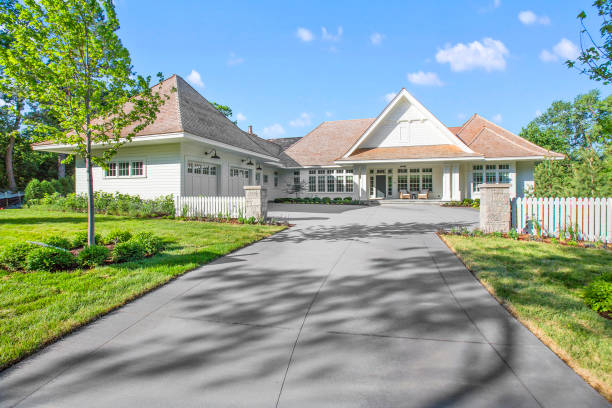Can Replacing a Window Boost AC Efficiency?
With the summer temperatures soaring and the cost of electricity on the rise, it should come as no surprise that many homeowners are investigating energy-efficient air conditioning options. What they may not realize is that even the most efficient HVAC technology won't be able to keep a home cool if the building's overall thermal performance is subpar.
What Is a Building Envelope?
A home's building envelope is the layer of insulating materials, including walls and windows, that keep the hot air out and the cool air in. Modern builders understand how important it is to create an energy-efficient building envelope, but their predecessors weren't always on the same page. As a result, many homes feature inadequate insulation and single-pane windows that do little to prevent heat transfer.
Already know about building envelopes and plan to replace your window to improve thermal efficiency? That's great. Otherwise, find out the facts about how replacing a leaky, damaged, or old window can improve a home's energy efficiency and reduce strain on the AC unit.
Why Old Windows Are a Problem
Old windows can place extra strain on AC units in two ways:
- Older windows that feature single pane glass have a greater rate of heat loss than modern replacement windows.
Over time, windows often develop air leaks around the panes or the frames.
In some cases, air leaks can be sealed with caulk or weather stripping, but it can be a hassle. Plus, these products can get in the way of normal operation, which means that residents won't be able to open the windows to let in cool breezes and air conditioning will be the only option.
How Replacement Windows Can Help
In older buildings, single-pane windows were the norm. That was fine before severe and prolonged heat waves began to increase in frequency, but now, these inefficient windows won't cut it. Replacing them with double-pane, or even triple-pane, windows can improve the energy efficiency of the building envelope, keeping cool air inside where it belongs.
Installing replacement windows will also eliminate problems with air leaks. This, in turn, can help to keep the home cool even on the hottest summer days, reducing both monthly bills and the chances that the AC unit will require premature replacement.
Repair or Replace?
For old, single-pane, leaky windows, contacting a window replacement service is the only viable option, but what about newer windows that are still in good condition? In some cases, it may be possible to repair or improve upon the current windows by:
- Sealing air leaks with caulk and weatherstripping
Adding energy-efficient window coverings
Installing storm windows
Using solar control film
Adding awnings, blinds, or overhangs
Needless to say, these home improvement projects also require a substantial investment. If the windows are leaky or inefficient, it makes more sense to replace them than it does to spend the same amount of money on stop-gap measures like those described above.
Trust the Experts
Homeowners who already know it's time to replace their aging windows should know that this is not a DIY-scale project. Replacing windows takes specialized skills, tools, and experience to complete the project without damaging the frames or glass panes. Instead of wasting time and money attempting a DIY window replacement, call a contractor who can help to avoid headaches and wasted money. It's the best way to maximize AC efficiency without investing far more money in an upgraded HVAC system.




